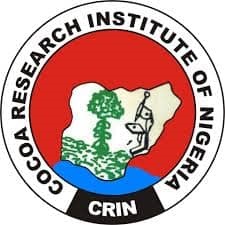In his address at the concluded 39th Annual HORTSON Conference, the President-in-Council (PIC), Horticultural Society of Nigeria, Dr. Usman Ibrahim, heartily thanked the CRIN ED, Dr. Patrick Adebola, who is also a Fellow of the Society, for hosting year 2021 Conference. He stated that the theme of the conference is coined taking into consideration the increasing demand for horticultural crops and the pressing needs for prevention and treatment of communicable and non-communicable diseases. The Covid-19 pandemic is putting diets and food security in jeopardy around the world with markets, affordability, and access to healthy and nutritional food out of reach. Evidence shows that horticulture is a notable solution for improved food security. Foods such as fruits, vegetables and spices play key roles in the health and well-being of families and communities. Sustainable horticultural production aims to produce nutritious and healthy foods, while reducing negative environmental impacts, conserving natural resources, and enhancing healthy ecosystem services. Stressing further, he stated that climate change, environmental degradation and stagnating yields threaten crop production and world food security. It is now recognized that the enormous gain in agricultural production and productivity achieved through the green revolution were often accompanied by negative effects on agriculture’s natural resource base. These negative effects are so serious that they jeopardize its productive potential in the future. It is also clear that the current food production and distribution systems are failing to feed the world. Given the current and the increasing future challenges to our horticultural crop supply and to the environment, sustainable horticultural production is emerging as major priority for policy makers and international development partners. He averred that it is HORTSON’s role, as horticulturists, to provide farmers with adaptable and relevant technologies, and ensure that governments provide them with enabling policies, infrastructural and institutional support. In order for HORTSON to champion the needed changes, the PIC noted that the society have developed a strategic plan which will cover 2020-2027, when the society will be 50 years old (1977-2027). The Society have also developed a draft document for a proposed “Council for Regulation of Horticulture (CORHORT) in Nigeria”. This document has been reviewed by various stakeholders. A copy of the draft document is being circulated for review, corrections, and observations. You can send all your observations to info@hortson.org.ng. The Society is proposing to organize a National Summit that will bring all horticulturists in Nigeria together to discuss the way forward and to form a national technical review and implementation committee for CORHORT. The date for the summit will be communicated. The Society have also developed partnerships with many key organizations that include the International Society for Horticultural Science; American Society for Horticultural Science; American Public Garden Association; Agriculture to Nutrition Community of Practice; Agriculture, Nutrition and Health Academy; Longwood Gardens; Federal and State Ministry of Agriculture and Private Agricultural Companies in order to further enhance the Society’s ambition of horticultural and agricultural development in Nigeria.


